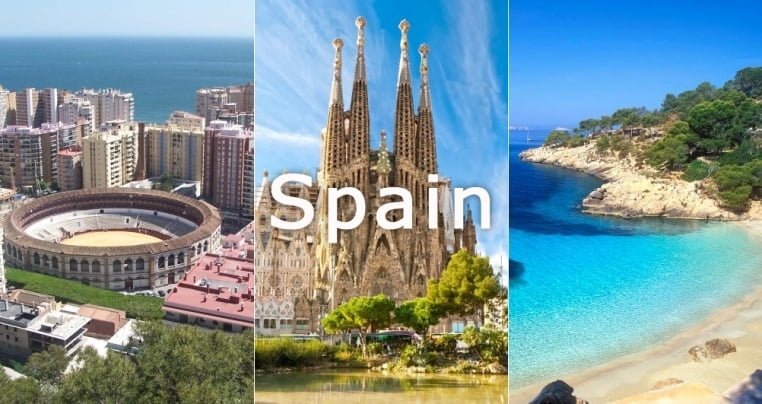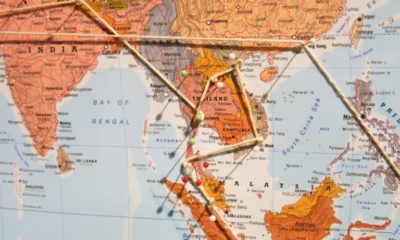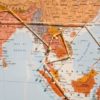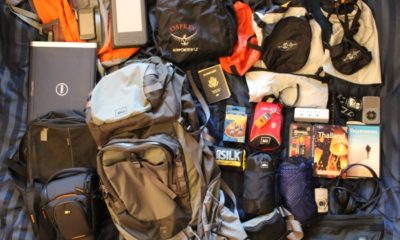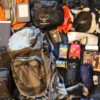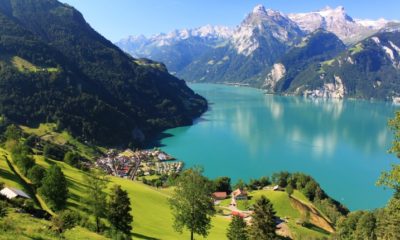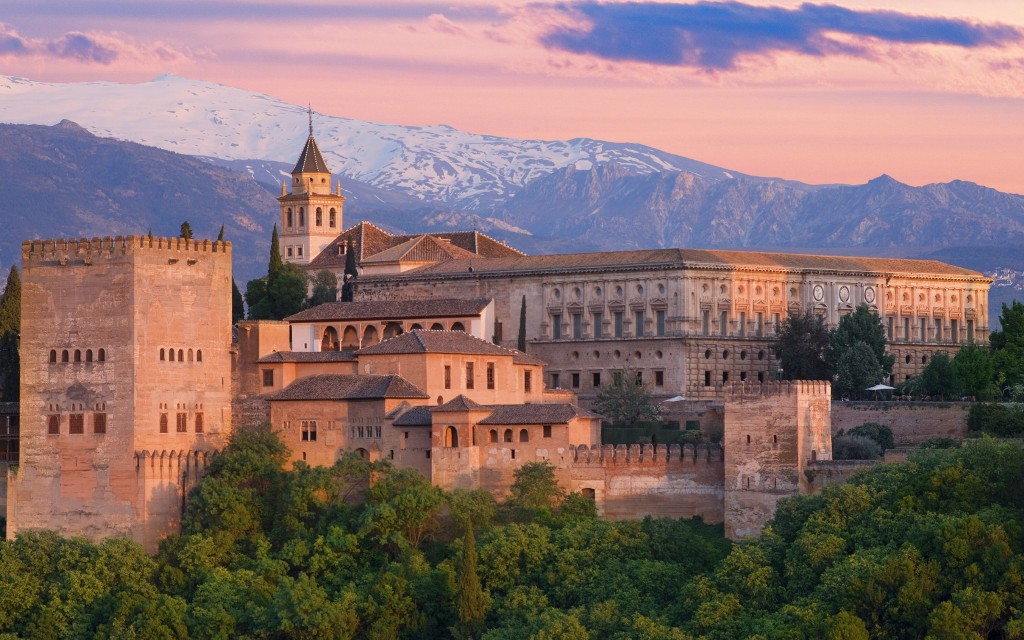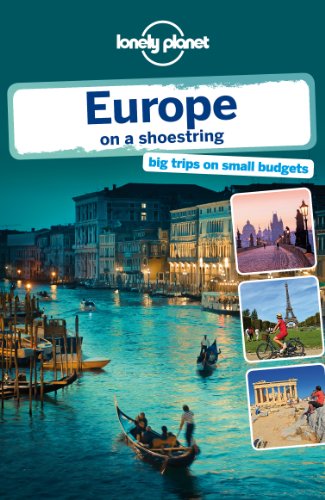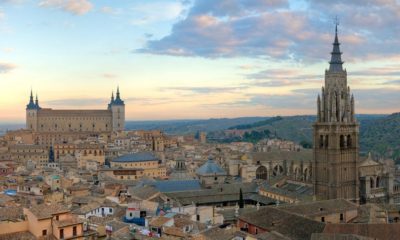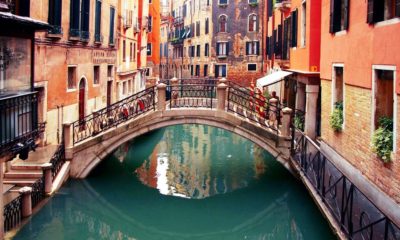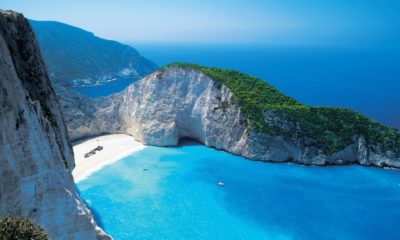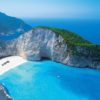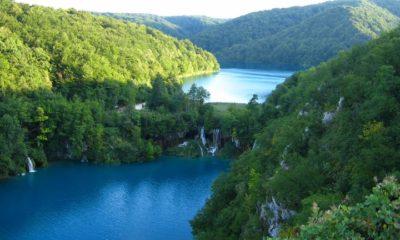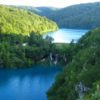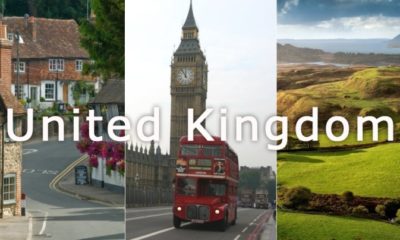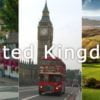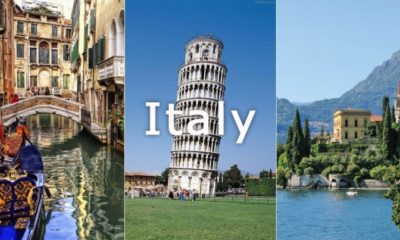Spain Backpacking Guide
Spain has a relaxed vibe, vibrant nightlife, rich culture, renowned festivities and the world’s largest number of World Heritage Cities.
Spain has a relaxed vibe, vibrant nightlife, rich culture, renowned festivities and the world’s largest number of World Heritage Cities.
Spain is one of the most diverse countries in Europe, making it a great destination for whatever you desire.
Go To Spain For…
Sunshine
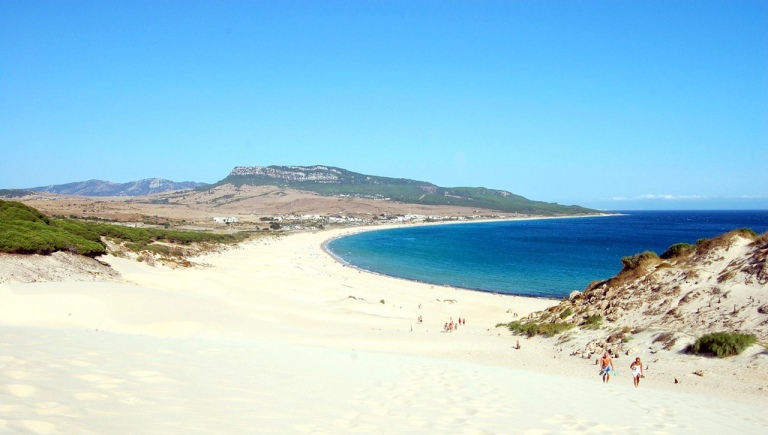
Bolonia Beach, Andalusia.
Spain has fantastic weather particular along the Mediterranean coastline, great for beaches, suntans, water sports and outdoor activities.
Football

Santiago Bernabéu Stadium, home of Real Madrid.
Spain is home to arguably the two biggest football clubs in the world, Real Madrid and Barcelona, which both possess the best players on the planet. Even if you don’t enjoy the game, both clubs stadiums are modern architectural masterpieces holding over 85,000 people and have fantastic atmospheres.
Festivals & Nightlife

La Tomatina, Buñol.
Spain has some of the best festivals and city nightlife in the world. The two most infamous festivals being La Tomatina and the Running of the Bulls (Fiesta de San Fermín). There are many other festivals annually throughout the country, involving food, drink, music and plenty of dancing.
Diversity
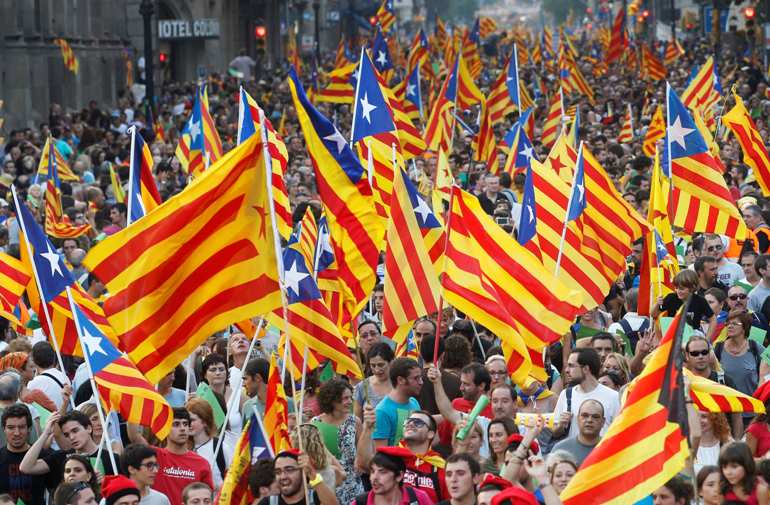
Patriotic Catalans waving their flag.
Spain has many distinct regions, each with their own atmospheres, foods, culture, language, heritage, sights and landscapes.
Consider Going Elsewhere If You…
Want A Quiet Beach
Spain has overtaken France as the most visited destination on Earth. In European holiday periods, swarms of tourists from colder climates flock to Spain’s coastal towns for sun, sea and sand. If you want quiet beaches in Spain you should definitely research German, British and Scandinavian school holiday periods.
Want Things Open
Spain is pretty much closed completely on Sunday, with no shops and very few bars and restaurants open. This is quite common in parts of Europe for religious reasons, but in Spain there are of course Siesta‘s in addition, meaning many places are closed in the afternoon between 2 and 5pm.
Top Places To Visit In Spain
Spain Need To Know
Basics
|
|
Entry
Spain is a member of the borderless Schengen Zone, meaning you can freely move to other member states without the need for multiple visa applications and passport controls.
Citizens of the EU, EEA and Switzerland don’t need a visa to enter the Schengen Zone, and can generally stay for as long as they wish.
A vast amount of passport holders from other countries can also enter the Schengen Zone visa-free for up to 90 days including; Australia, Canada, New Zealand and the United States.
Citizens of visa-exempt nations need only produce a passport which is valid for the entirety of their stay, but other nationals require a Schengen visa and must have a passport which has at least 3 months’ validity beyond their period of stay.
For official information visit exteriores.gob.es or your home government travel bureau.
Spanish law defines under-18s as minors and subject to parental control or adult supervision, you may need written parental consent to travel. Contact an official bureau for further advice.
Getting Around
Trains are generally good value, frequent and a great way to travel around Spain, but you will need to reserve your ticket in advance, especially in summer, to avoid disappointment.
You can view timetable information and buy tickets at Renfe. Official Europe wide rail passes can be obtained through Rail Europe.
Buses are also easy forms of transport, with a very high frequency of direct routes between major destinations.
If you wish to travel to and between Spanish islands such as Mallorca and Ibiza, flying is the best option, but boats are available. If you are planning on visiting the Canary Islands you will certainly need to fly.
Taxis in major towns and cities are reliable and easy to find. Always ask for an estimated price beforehand to avoid being overcharged.
Hitchhiking in Spain is difficult and will be extremely frustrating, so for your time’s sake it is best avoided.
Read more about Getting Around When You Get There
Accommodation
Spain has a wide variety of hostels and you should never have any problem finding one.
The average price of a hostel is €10-25 a night.
All hostels in Spain will provide linen, cooking and bathroom facilities. Usually there will be internet facilities as well as common and laundry rooms.
Read more about Accommodation When You Get There and Living in Hostels
Food And Health
The standard of food safety and hygiene is good, and there are places to eat out cheaply, if you do not wish to cook. Major supermarkets include; Mercadona, Dia and Carrefour.
Unless stated, water is safe to drink from kitchen taps in most parts of Spain, if in doubt, buy bottled water.
Medical facilities are good, but make sure you have adequate travel insurance and accessible funds to cover the cost of any medical treatment and repatriation.
EU and EEA citizens should get a free European Health Insurance Card (EHIC) before leaving home. The EHIC isn’t a substitute for medical and travel insurance, but it entitles you to state provided medical treatment that may become necessary during your trip.
Other nationalities may also have reciprocal health care agreements, find out from your government travel bureau.
Always contact your GP around 8 weeks before your trip to check whether you need any vaccinations or other preventive measures. Visit here for Recommended Vaccinations and read here for more about Travelling Health In General
Weather & Time To Go
The Mediterranean climate is characterized by hot, dry summers and mild, rainy winters. Central Spain has hot, dry summers and cold winters. The Northern coast has cooler summers and mild winters, with frequent rainfall.
Communications
Internet and wifi is widespread and accessible in most hostels. Local pay-as-you-go SIM cards for your mobile phone and international calling cards are cheaply available.
Dangers And Considerations
Crime levels in Spain are low, but take sensible precautions to avoid mugging, bag snatching and pick pocketing.
Forest fires occur frequently in Spain during the summer months, so take care when visiting woodland areas. Causing a forest fire is treated as a criminal offence, so make sure cigarette ends are properly extinguished, don’t light barbecues and don’t leave empty bottles behind.
Some beaches, especially around Spanish Islands, may have strong undercurrents, a red flag means you mustn’t enter the water.
When buying goods in Spain with credit or debit cards, all customers must show ID.
Dangers constantly change. Always check with your foreign office (British Foreign Office webpage) or travel advice bureau for the latest information regarding your destinations safety.
Read more about Safety And Security here
Respecting Culture
Avoid political arguments about Catalonia, Galicia or the Basque Country; and the past, such as the former fascist dictatorship of Francisco Franco.
Spaniards are keen to maintain physical contact while talking, such as putting a hand on your shoulder or patting your back.
Depending on the level of familiarity with a person you may be given two light kisses on the cheek, including males, when entering or leaving a group. To avoid awkwardness, first move to the right to kiss/ receive the other person on the left cheek and then to the right cheek.
Appearing drunk in public is generally frowned upon, and drunk foreigners are a negative stereotype in Spain, so try to be respectful.


